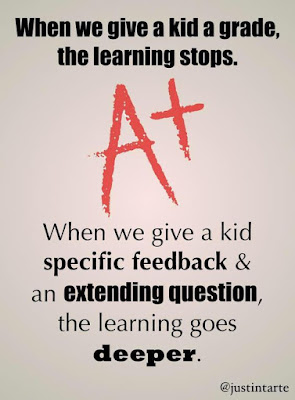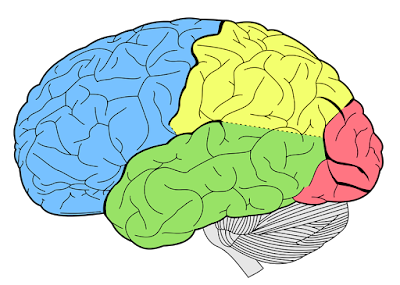Feedback Thoughts
I love how this class is set up by learning from your mistakes. I have a friend who has been my chemistry lab partner for two years. She is very smart. However, she knows to learn from her mistakes. When we would mess up in lab, she would always says there is more to write about, because our discussion/conclusion portion is the main part of our lab. In that section, we are able to analyze our mistakes and learn from them. From then on, I was not worried about making mistake in chemistry lab. Every time one of us messed up we would just look at each other and say "there's more to write about" and continue on.
When I don't get the "A" that I want, I feel as though I got rejected. I feel as though I am not good enough to receive a high mark. In Why Does Rejection Hurt so Much-and What to Do About It, it was fascinating to read how our brains are wired to respond to rejection. In a MRI machine, the same area that showed activity when there was physical pain also showed activity when the patient talked about rejection. This article does a good job at redirecting the focus of negativity. Instead of putting yourself down for something, think of positive things you are good at. Redirecting those feelings can revive your self-worth.
Nobody wants to know they did something wrong. People panic before and sulk after. In Why It's So Hard to Hear Negative Feedback, it was shocking to me to hear that we should give negative feedback to others. However, giving and receiving negative feedback helps with self-improvement. Starting now, I will try to take in negative feedback better and give my honest negative feedback for others.
Receiving negative feedback is hard, like rejection. However, it helps with learning and self-improvement. If we don't make mistakes, then we don't have much to learn from. I will be open to hear other people's opinions on my work and adjust where I need to.
When I don't get the "A" that I want, I feel as though I got rejected. I feel as though I am not good enough to receive a high mark. In Why Does Rejection Hurt so Much-and What to Do About It, it was fascinating to read how our brains are wired to respond to rejection. In a MRI machine, the same area that showed activity when there was physical pain also showed activity when the patient talked about rejection. This article does a good job at redirecting the focus of negativity. Instead of putting yourself down for something, think of positive things you are good at. Redirecting those feelings can revive your self-worth.
Nobody wants to know they did something wrong. People panic before and sulk after. In Why It's So Hard to Hear Negative Feedback, it was shocking to me to hear that we should give negative feedback to others. However, giving and receiving negative feedback helps with self-improvement. Starting now, I will try to take in negative feedback better and give my honest negative feedback for others.
Receiving negative feedback is hard, like rejection. However, it helps with learning and self-improvement. If we don't make mistakes, then we don't have much to learn from. I will be open to hear other people's opinions on my work and adjust where I need to.
(Picture of a Grade Canvas)




Comments
Post a Comment